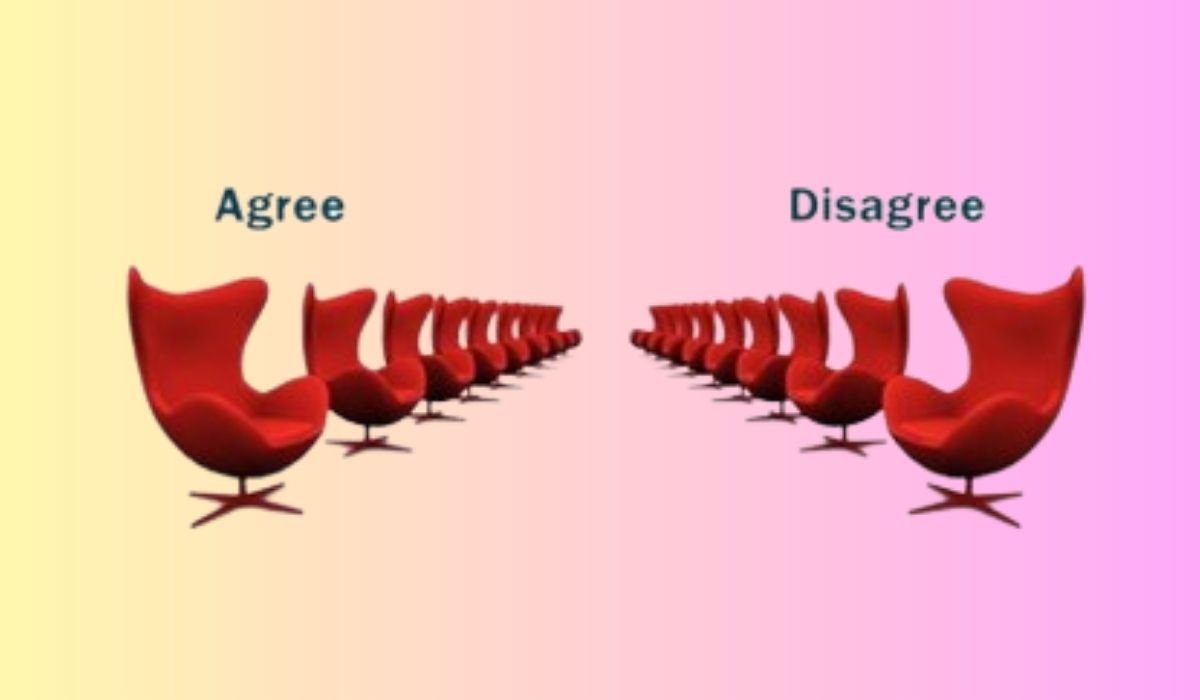Many different approaches are used in the classroom to help students develop their critical thinking, empathy, and interpersonal and presentational abilities. The use of “philosophical chairs” is one strategy that has received a lot of attention. Students are motivated to think critically, share their ideas, consider alternative points of view, and have civil conversations by using this exciting and dynamic method. Philosophical chairs encourage students to think critically and openly, preparing them to take an active role in their own education and the world at large.
The Essence of Philosophical Chairs
Students are given the opportunity to explore philosophical, ethical, and moral concerns through the use of “philosophical chairs,” also known as a “Socratic circle” or “fishbowl discussion.” Chairs are often lined up in two concentric circles, with the inner circle being smaller than the outer. Inner-circle students lead and participate in discussions, while those in the outer ring listen and take notes. Then, in successive rounds, the kids in the outside circle take on the role of facilitators, allowing all children to take part equally in the activity.
Benefits of Philosophical Chairs
Critical Thinking and Reasoning
Students who play philosophical chairs develop their capacity for in-depth analysis, evaluation, and synthesis of complex ideas. They become adept at arguing persuasively for their positions and politely disputing those of others. Taking this approach helps students develop intellectually by prompting them to confront their own preconceptions and biases.
Active Listening and Empathy
Students learn to empathize with and value the perspectives of others by practicing active listening skills with one another. This contributes to a welcoming classroom climate in which students of all origins and perspectives are valued and respected.
Effective Communication
Students that participate in philosophical discussions in chairs develop their ability to state their ideas clearly, present their arguments persuasively, and debate with civility. Students improve their oral communication skills through this approach, which helps them have more fruitful conversations outside of the classroom.
Emotional Intelligence
Participating in philosophical chairs has been shown to improve both IQ and EQ. Debates teach students to control their feelings and maintain poise when arguing. Better relationships and mutual comprehension are fostered when students learn to actively listen and respond with empathy.
Ethical and Moral Reasoning
Students can engage in deep reflection on moral and ethical questions at philosophical chairs. Students gain experience navigating ambiguous situations, weighing competing moral theories, and pondering the outcomes of their actions. Students will develop into more principled, responsible people as a result of this process’s emphasis on ethical reasoning.
Implementing Philosophical Chairs
For philosophical chairs to be successful in the classroom, teachers must foster an atmosphere of openness and mutual respect. Several important factors include:
Establish Ground Rules
Make it easy for everyone to know what is expected of them in terms of respect, listening, and contributing positively. Motivate your pupils to question concepts rather than people in order to promote an atmosphere of open inquiry.
Select Thought-Provoking Topics
Select issues that are timely, significant, and appropriate for the audience’s age. To foster critical thinking and analysis, have students investigate arguments on both sides of an issue.
Provide Resources
Give them access to reading materials like articles, essays, and original sources so they may create their own opinions.
Scaffold Discussions
Start with easier material and work up to the more difficult stuff. Help students who are having difficulty expressing themselves by providing sentence starters or leading questions.
Reflect and Debrief
Every philosophical chairs session should end with some time for participants to ponder and debrief. Facilitate metacognition and development by having students reflect on and discuss what they’ve learned, what they’ve struggled with, and what they’ve learned.
Conclusion
Students’ ability to think critically, empathize with others, and communicate effectively can all be strengthened with the help of philosophical chairs. This method helps students understand themselves and others better by fostering an environment conducive to open discussion, attentive listening, and civil debate on a wide range of topics. Philosophical chairs are a game-changing tactic that can help students become the kind of reflective, compassionate, and politically active citizens the world needs.











